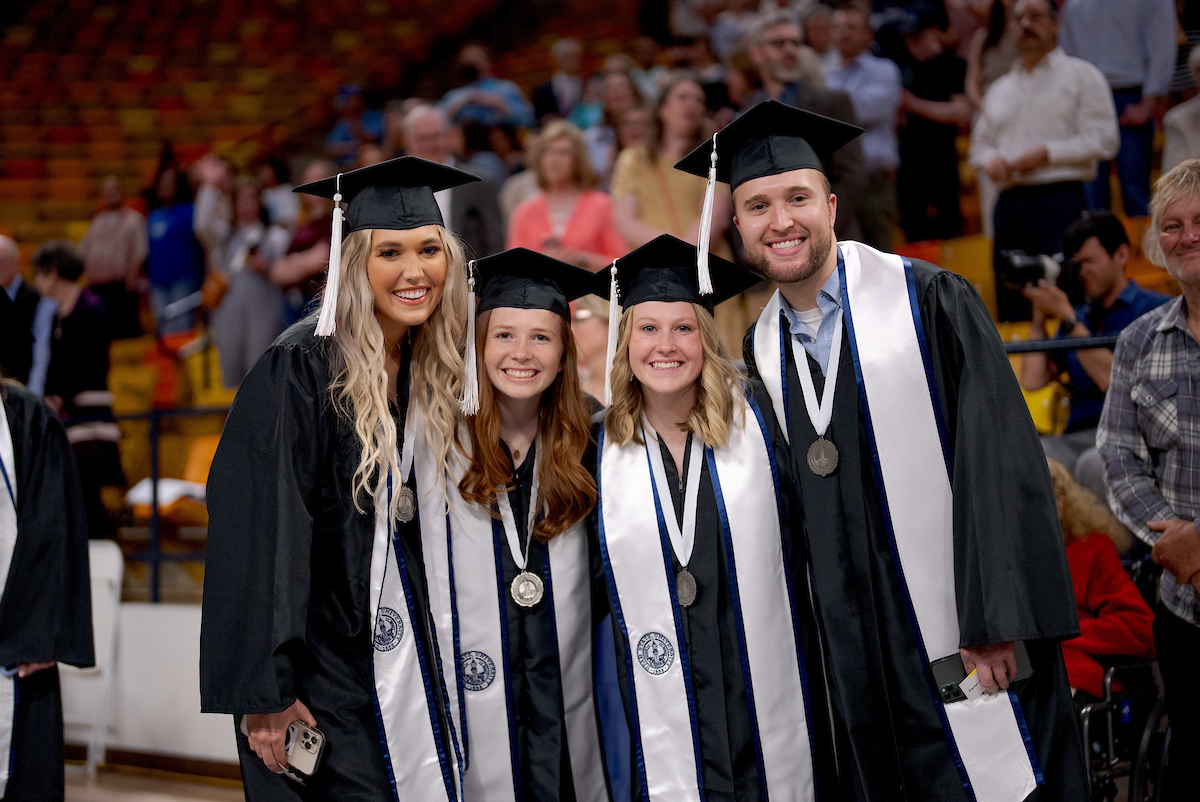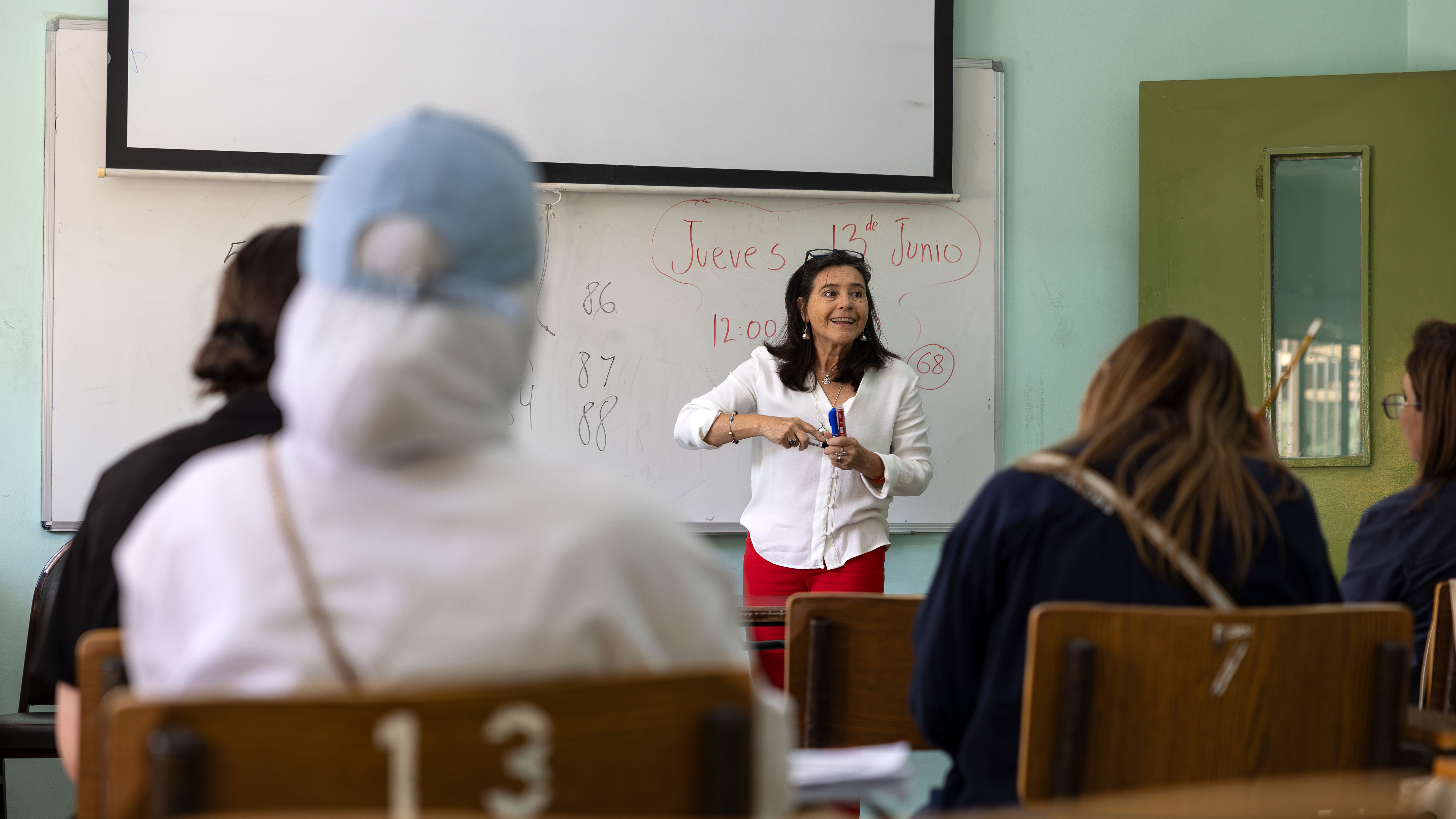CANRI Wants to Make Graduation More Sustainable and Affordable

CHaSS graduates participate in 2023 commencement exercises. (Photo credit: Utah State University)
By Andrea DeHaan, CHaSS Communications Editor
Graduating students are probably sick of being asked, “What’s next?” In a time that is both exciting and overwhelming for many, one decision faced by graduates is about to get a little easier: what to do with that regalia after graduation.
For some, graduation gowns go into a closet, perhaps to be plucked out in a couple of years for a sibling or grad school though the latter often means buying new regalia specific to the degree and institution. In many cases, however, graduation gowns end up on the racks of your local thrift shop, or worse, at the local dump.
USU’s Community and Natural Resources Institute (CANRI) is taking a decidedly more sustainable approach to this year’s ceremonies — and helping students in need — by recycling graduation gowns after students have worn them.
Most students participating in graduation ceremonies must purchase their cap and gown, which is often a one-time investment for an outfit they’ll don on one occasion only. This year’s bachelor graduation basic bundle costs around $50 and includes a cap, tassel, and gown made of acetate and polyester. It might not seem like much, but throw in a sash, master’s hood, and diploma frame, and the outfit starts to feel like a big investment compared to the few hours spent wearing it.
CANRI Director Jessica Schad said the idea grew out of a meeting with college leadership, where the problem of students affording graduation was raised.
“We discussed how both economically and environmentally unsustainable [it is] to use gowns once before they end up in the landfill or the back of a closet, and that there would be multiple benefits to reusing them,” Schad said.
College leadership agreed, and CANRI started a campaign to recycle gowns following this year’s ceremonies — not just to keep them out of landfills but to put them in the hands of students who might struggle to afford the cost of buying their own.
CANRI has set up drop-off locations for post-graduation gowns in Old Main (Room 338) and the Taggart Student Center (Room 316A), and each one collected will be recycled and given to a graduate ahead of next year’s celebration.
Schad, however, didn’t want to make students in need wait. She asked the College of Humanities and Social Sciences (CHaSS), where CANRI is housed, to help purchase 100 gowns for undergraduate and graduate students, and participants are expected to pay it forward by returning their regalia for future use.
“We quite quickly ran out of the 100 gowns,” said Schad. “We asked students to request them if they felt constrained in being able to purchase it themselves. I would guess that there are many other students who would have appreciated not having this expense, which is why we hope to expand this in the future.”
By collecting gowns and passing them on to future graduates, Schad says CANRI hopes to help provide economic benefits for students while making the short-term use of regalia more environmentally sustainable.
Because mortar boards are more difficult to sanitize as well as something students decide to keep — along with their tassel, CANRI is only collecting gowns at this time.
Any graduates wishing to participate are encouraged to visit the collection sites in Old Main or the TSC before the end of May. CANRI will also have drop-off bins at the CHaSS graduation celebration in the USU Fieldhouse building, following the college’s graduation on May 2. Bins will also be located southeast of the Spectrum that same day. Those with questions should contact
jessica.schad@usu.edu.




